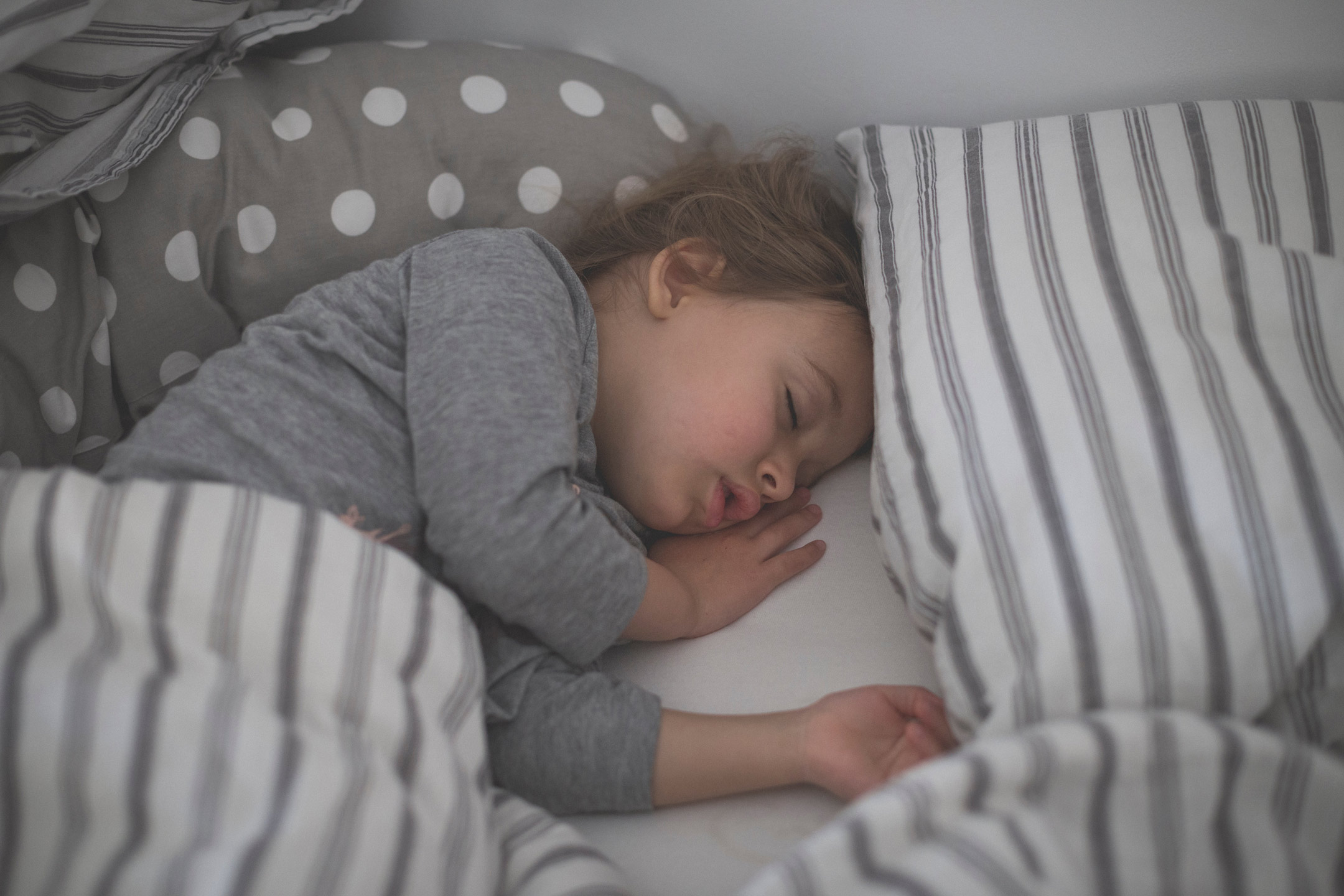
29 Sep 6 tips for parents to promote quality sleep in their children
Dr Carmel Harrington has been working in the world of sleep for nearly 20 years. She has 6 tips for parents to promote quality sleep in their children.
- Ensure your child’s bedroom is conducive to sleep. A relaxing environment will ultimately allow your child to experience the best sleep possible. Do not have any screens in the room and remove sources of bright light. You can also ensure your child’s room is comfortable by making sure the temperature isn’t too hot or cold and is free from distracting noises. If your child is afraid of the dark or regularly experiences nightmares, allow them to sleep with a nightlight or leave their door open slightly to provide reassurance.
- Maintain a consistent sleep routine. It is important for children to maintain the same sleep schedule. Your child’s sleep and wake times should be consistent, even on weekends…Stick to the same nightly routine as much as possible, including feeding your child dinner at the same time each night, followed by a bath and a story at bedtime. Your routine might also include some meditation, which can be beneficial for children who struggle to switch off and fall asleep.
- Avoid these activities or behaviours before bedtime. There are several factors that can disrupt your child’s sleep, including the food and drink they consume. Heavy meals too close to bedtime can keep kids awake, while hunger can also impact their sleep. You can give your child a light snack, such as warm milk, before bed to prevent restlessness, while avoiding soft drinks, many of which contain caffeine, after lunchtime is important. Reducing overall screentime and switching off completely at least one hour before bedtime, and replacing it with relaxing activities, can help calm and prepare your child for bed. It is also important to address different stressors that can play a role in a child’s sleep, such as fears of the dark or problems with schoolwork or friends.
- Encourage healthy daily habits. A child’s habits during the day are just as important as their bedtime routine. Encourage your child to be active every day and to pursue activities after school and on weekends. This can include formal activities such as engaging in sports or be as simple as playing outside for an adequate amount of time. To ensure they receive a broad nutrient intake, help kids understand the value of eating a rainbow of foods, and incorporate a range of colourful fruits and vegetables into their diet.
- Use a security object or weight to promote quality sleep. Sleeping with a security object such as a favourite toy can be a helpful self-soothing prop for children. Weighted toys are also a safe device to help your child over the age of three fall and stay asleep. The weighted nature of these toys can provide proprioceptive input, which refers to the body’s ability to sense its location, movement and actions. This can soothe an overstimulated brain, restore balance and calmness, and ultimately promote restful sleep. Older children who have grown out of toys may prefer sleeping with a weighted blanket. Their weighted nature mimics deep tissue stimulation, which discourages movement and produces a calming, stress-relieving effect, promoting better quality sleep.
- Spend quality time with your child. Parents constantly juggle multiple responsibilities after their child’s school day – including helping with homework. However, if you haven’t spent time with your child during this period, it can have an impact on their sleep. Children value quality time with their parents and will struggle to fall asleep without this much-needed time and communication with them. If you’re balancing several commitments, try and integrate time spent with your child into your schedule. Let your child help with preparing dinner or grocery shopping and ensure you sit down together as a family to eat. This encourages better communication and supports your child’s emotional wellbeing.
Dr Harrington is the Managing Director of Sleep for Health and an Honorary Research Fellow at the Children’s Hospital Westmead and consultant sleep expert.




